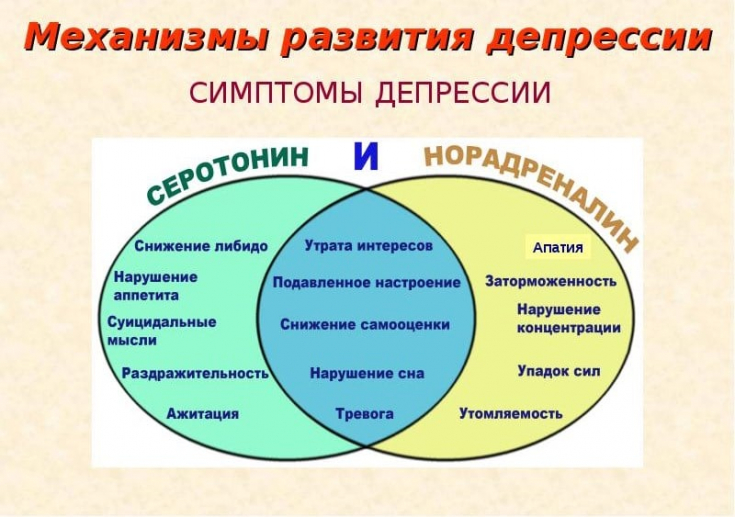Most of us at least once in our lives had to feel a breakdown, impotence and unwillingness to do something. Many people call it laziness, but it's not quite like that. As V. G. Belinsky said: “Apathy and laziness — true freezing of soul and body.
Apathy – this is a clinical symptom, which is characterized by an indifferent attitude to the environment, the absence of external manifestations of emotional reactions and aspirations for any activity.
In other words, everything seems insipid: tea is unsweetened, the film is uninteresting, work is tiring, children do not please, life seems dull and meaningless. The state of apathy can be a sign of serious somatic diseases, exhaustion of the body or the initial stage of depression.
On estet-portal.com read about the causes of apathy, the difference between apathy and laziness, as well as effective methods to overcome a difficult period.
- Apathy: Causes of a Painful and Emotionless State
- Symptoms of apathy: how not to confuse with laziness and the first sign of depression
- Treatment of apathy: psychological and medical methods
Apathy: the causes of an agonizing and emotional state
An apathetic state may occur against the background of mental or somatic disorders. Apathy is often observed in endocrine disorders, hereditary predisposition, chronic diseases (diabetes mellitus, oncopathology), certain medications (oral contraceptives, corticosteroids, sleeping pills), premenstrual syndrome and pregnancy, Alzheimer's disease and dementia, schizophrenia, alcoholism or drug addiction, chronic stress , lack of sunlight, beriberi, physical or emotional overstrain.
Follow us on Facebook

Apathy is also a sign of emotional burnout, post-traumatic stress disorder, or the onset of depression.
The state of apathy can arise from overwork, dissatisfaction with life, or the inability to change it at this stage. Apathy – this is the first call: in the body or psyche, something went wrong.
Symptoms of apathy: how not to confuse with laziness and the first sign of depression
Apathy is easy to confuse with ordinary laziness at first, so people do not attach importance to disturbing symptoms.
However, the state of apathy is fundamentally different from simple laziness: during apathy there is no strength for anything.
Laziness – it is a lack of motivation for activity, a lack of will, a fear of responsibility or a lifestyle.
Apathy is much more dangerous than laziness: it can indicate physical and mental exhaustion. Symptoms of apathy include:
• chronic fatigue;
• constant drowsiness;
• loss of appetite;
• sluggishness;
• deterioration of mood;
• Sharp restriction of social contacts;
• lack of initiative;
• giving up work and hobbies;
• feeling of loneliness and fear;
• impaired memory and concentration.
Apathy is also combined with symptoms of lack of will, but unlike laziness, lack of will is not an ordinary state of the sufferer. With apathy, a sense of reality is lost, a desire for loneliness arises, and any action causes maximum fatigue.
Anti-stress mandalas: how sacred drawings became a fashion trend

Even getting out of bed requires considerable mental strength, everything is so bad. But apathy – this is not a diagnosis, but a symptom that can be stopped by with adequate treatment.
Treatment of the state of apathy: psychological and medical methods
Very often, a person in apathy does not want to fight his condition and make efforts for this.
In such cases, the help of a specialist is needed, primarily a competent psychologist and psychotherapist. With the help of psychoanalysis, cognitive therapy and hypnosis, it is possible to identify the root causes of an apathetic state, as well as conduct timely psychotherapy.

Sometimes patients are prescribed medication, it all depends on the severity of the condition. Vitamins, adaptogens (ginseng, eleutherococcus) and sedatives are used, and in more severe cases – nootropics (piracetam, glutamic acid).
A person in a state of apathy is shown a change in the mode of work and rest, walks in the fresh air, physical activity and minimization of mental stress.
During such periods, travel and change of scenery, communication with loved ones who are able to provide support are also recommended.
Give yourself a break and restore the body's resources, do not beat yourself up in the neck and do not reproach yourself for idleness. Mental Health – it is the foundation of our well-being and happiness. Take care of yourself and pamper yourself during these periods.
Thank you for staying with estet-portal.com. Read other interesting articles in the "Psychology" section. You may also be interested in: Melancholy for no reason: why endogenous depression occurs and how to treat it






Add a comment